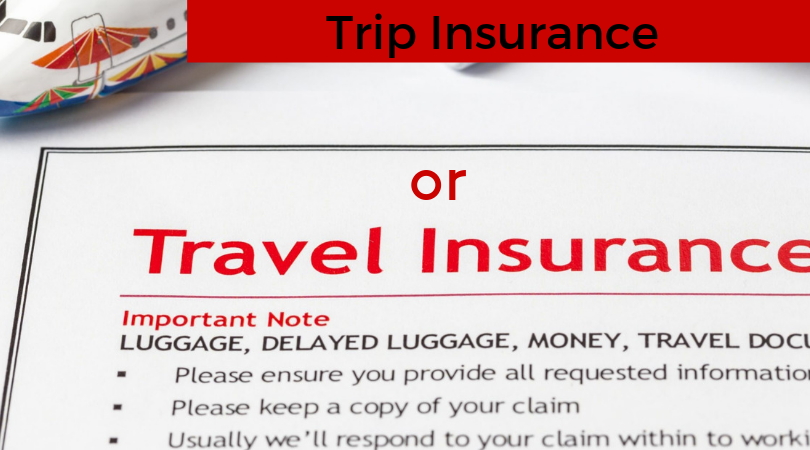
You’re Not Alone in This
Immigration-Friendly Countries for Nigerians Seeking Job Opportunities. If you’re reading this, chances are you’ve spent countless nights worrying about your future. Maybe you’ve sat with a stack of immigration forms on your desk, unsure where to start. Maybe you’ve asked friends for advice, only to get ten different answers that left you more confused than before. Or perhaps you’ve scrolled endlessly through government websites, trying to make sense of timelines, visa categories, and application fees.
I get it. The immigration process can feel overwhelming, like walking through a maze without a map. You worry about making one mistake that could cost you time, money, or even your chance at a better life. You’re not just looking for any job abroad; you’re looking for a real opportunity, a chance to support your family, build your career, and experience a sense of stability you might not feel at home.
Here’s the truth: you’re not alone in this. Thousands of Nigerians are walking the same path every year. Some succeed, some give up, and some get stuck because they didn’t have the right guidance. What I want to do here is be that trusted friend who sits you down and says, “Let’s break this down together.”
I’ve seen the fears, I’ve heard the stories, and I know the challenges Nigerians face when trying to relocate for work. That’s why I’ve written this guide—to simplify things, to reassure you, and to point you toward the most immigration-friendly countries where your chances of getting a job and building a stable future are higher.
Here’s What I Wish I Knew about Immigration-Friendly Countries
When I first started researching immigration years ago, I made almost every mistake imaginable. I relied on hearsay instead of facts. I believed myths like “only rich people can relocate” or “you need powerful connections before any country will accept you.” I filled out forms in a hurry, thinking speed was more important than accuracy. I even trusted the wrong people—“agents” who promised me shortcuts but left me with empty pockets.
Here’s what I wish I knew back then:
- Immigration is not about luck—it’s about information.
The more you understand the process, the better your chances. - Every country has its own set of rules, and some are more welcoming to immigrants than others.
You just need to know which ones they are. - There are real opportunities available for Nigerians. It’s not just a dream; people like teachers, nurses, IT professionals, and skilled workers are moving abroad every year.
- Mistakes can cost you, but preparation can save you.
Small errors on paperwork or missing deadlines can delay your journey, but with careful planning, you can avoid them.
So, if you’ve been feeling lost, don’t beat yourself up. That confusion is normal. By the end of this article, my hope is that you’ll feel clearer, calmer, and more confident about your options.
What Makes a Country Immigration-Friendly?
Before we dive into the specific countries, let’s clear up one thing: not every country is open or welcoming to immigrants. Some have extremely tough requirements that make it almost impossible for ordinary Nigerians to move there for work. Others are more flexible, offering multiple pathways for skilled workers, entrepreneurs, or even people who just want to study and later transition to jobs.
When I say “immigration-friendly,” I’m talking about countries that tick these boxes:
- Clear Work Visa Pathways – Countries where the government has structured programs for foreign workers, rather than random or rare opportunities.
- Demand for Skilled Workers – Places where industries are actively searching for professionals (healthcare, IT, engineering, education, construction, etc.).
- Permanent Residency Options – Countries that don’t just give you a temporary visa but allow you to eventually settle down, bring your family, and call it home.
- Reasonable Timelines – No one wants to wait 10 years for approval. Immigration-friendly countries process applications faster.
- Support for Foreign Workers – Countries that provide integration support, language classes, or clear guidance on adjusting to their job market.
- Nigerian Community Presence – Having other Nigerians already there makes it easier to adjust. You’ll have support systems, cultural familiarity, and less isolation.
Now that we know what to look for, let’s break down the most immigration-friendly countries for Nigerians.
Canada: The Land of Opportunities
If there’s one country that almost every Nigerian considers when thinking about relocation, it’s Canada. And honestly, the hype is justified.
Why Canada is Immigration-Friendly
Canada has one of the most open and structured immigration systems in the world. The government isn’t shy about saying it: they need immigrants to keep their economy growing. Each year, they set immigration targets, and Nigerians consistently make it onto the list of top immigrant groups.
Here’s why Canada is so attractive:
- Express Entry Program – This is a points-based system where you’re ranked based on your age, education, work experience, and language skills (English/French). If you meet the cut-off score, you can receive an Invitation to Apply (ITA) for permanent residency.
- Provincial Nominee Program (PNP) – Each province in Canada has its own immigration stream. For example, provinces like Saskatchewan, Manitoba, and Nova Scotia actively invite skilled workers, even if their Express Entry score isn’t the highest.
- Job Market Demand – Canada has huge demand in healthcare (nurses, doctors, caregivers), IT (software engineers, developers), and skilled trades (plumbers, welders, electricians). Nigerians with these skills are in high demand.
- Pathway to Permanent Residency – Unlike some countries that keep you on temporary work visas, Canada offers a clear path to PR, which later leads to citizenship.
Real-Life Example
Take Chidinma, a nurse from Lagos. She applied through the Express Entry system after getting her IELTS certification. At first, she was nervous—her CRS score wasn’t the highest. But when Nova Scotia’s Provincial Nominee Program opened, she applied and got nominated. Within a year, she and her family landed in Halifax. Today, she works in a hospital and is on track to become a Canadian citizen.
Her story is proof that you don’t have to be “perfect” on paper; you just need the right information.
Common Mistakes Nigerians Make with Canada
- Skipping IELTS – Many Nigerians delay or avoid taking the IELTS (English proficiency exam). But without it, your chances drop significantly.
- Using Fake Documents – This is a big one. Canada verifies everything. Fake employment letters or forged bank statements can lead to a lifetime ban.
- Many Nigerians tend to focus only on Toronto or Vancouver. However, smaller provinces often offer better opportunities and have less competition..
Practical Tips for Canada
- Start with IELTS—it’s your gateway.
- Use the Canadian government’s official website, not just “agents.”
- Consider smaller provinces; they often move faster.
- Save money ahead for proof of funds; it’s required.
United Kingdom (UK): Tradition Meets Opportunity about Immigration-Friendly.
The UK has long been a favorite for Nigerians. With historical ties, a large Nigerian community, and English as the main language, it feels like a natural destination.
Why the UK is Immigration-Friendly
In recent years, the UK has opened more doors for skilled workers, especially in health and education. Here’s what makes it stand out:
- Skilled Worker Visa – If you get a job offer from a UK employer approved by the Home Office, you can apply for this visa. It covers jobs like healthcare workers, engineers, teachers, and IT professionals.
- Health and Care Worker Visa – A special route for nurses, doctors, caregivers, and social workers. Nigerians in these fields are in high demand.
- Student Pathway – Many Nigerians move first as students, then transition to jobs after graduation. The Graduate Route allows international students to stay for up to two years after their studies to work.
- Strong Nigerian Community – From London to Manchester, Birmingham to Leeds, Nigerians are everywhere. That sense of community support is invaluable.
Real-Life Example
Uche, a teacher from Abuja, applied for the Skilled Worker Visa after getting a job offer at a secondary school in Manchester. The school sponsored his visa, and within months, he relocated. Today, he’s teaching while his wife studies for her master’s degree. They’ve built a new life with less stress than they imagined.
Common Mistakes Nigerians Make with the UK
- Relying on Fake Job Offers – Some “agents” sell fake sponsorship letters. The UK checks thoroughly, and fake offers lead to visa rejections.
- Not Meeting Financial Requirements – For student visas, many Nigerians underestimate the proof-of-funds requirement and get denied.
- Overlooking Regional Opportunities – Most Nigerians aim for London, but smaller towns often have more job vacancies and cheaper living costs.
Practical Tips for the UK
- Always verify if an employer is on the Home Office’s list of approved sponsors.
- Consider teaching, nursing, and caregiving—they’re in high demand.
- For students: provide genuine proof of funds and choose universities located outside of London for more affordable options..
Germany: Europe’s Hidden Gem
Germany may not be the first country Nigerians think of, but it’s one of the most immigration-friendly in Europe—especially for skilled workers.
Why Germany is Immigration-Friendly
- Skilled Worker Visa – Germany introduced new rules making it easier for foreign professionals to work there. If you have vocational training or a degree and a job offer, you can apply.
- Job Seeker Visa – You can move to Germany without a job for six months to search for work. If you find a job, you can switch to a work visa.
- Blue Card Program – Similar to the US Green Card, this program allows highly skilled workers to live and work in Germany with a pathway to permanent residency.
- Growing Job Market – Germany has shortages in engineering, IT, healthcare, and technical trades. Nigerians in these fields have strong chances.
Real-Life Example
Emmanuel, an IT professional from Port Harcourt, applied for Germany’s Job Seeker Visa. He saved enough to cover his living costs for six months. Within four months of arriving, he landed a software developer job in Berlin. Today, he holds an EU Blue Card and is planning to apply for permanent residency.
Common Mistakes Nigerians Make with Germany
- Ignoring Language Requirements – While many Germans speak English, most employers require at least some knowledge of German. Nigerians who ignore this struggle.
- Underestimating Costs – Germany expects proof of funds (blocked account) for the Job Seeker Visa. Many applicants don’t have enough money.
- Relying Solely on Agents – Agents often overcharge Nigerians for services they could do themselves through Germany’s official websites.
Practical Tips for Germany
- Start learning basic German (at least A2 level). It boosts your chances.
- Save enough for proof of funds before applying.
- Explore industries like IT, engineering, and healthcare—they’re desperate for workers.
For more info, visit:
| Country | Immigration Pathway | Official Link |
|---|---|---|
| Canada | Express Entry & Provincial Nominee Programs | Canada Immigration |
| United Kingdom | Skilled Worker & Health and Care Worker Visa | UK Visa |
| Germany | Job Seeker Visa & EU Blue Card | Germany Immigration |
| Australia | Skilled Independent Visa (Subclass 189) | Australia Immigration |
| United States | H-1B Work Visa & Green Card | US Visas |
| United Arab Emirates (UAE) | Work Visa & Residence Permit | UAE Work Visa |
| Netherlands | Highly Skilled Migrant Visa | Netherlands Immigration |
| Ireland | Critical Skills Employment Permit | Ireland Work Permits |
| New Zealand | Skilled Migrant Category | New Zealand Immigration |
| South Africa | Critical Skills Work Visa | South Africa Visas |
Related content: Affordable Immigration Legal Services





